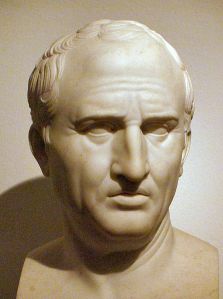
Above you see several so-called Stolpersteine — “stumbling stones” — in a sidewalk near my place in Berlin. The flowers and candles are from a neighbor, who regularly looks after the many, many stones in our street. Each one commemorates one victim of National Socialism who lived at the address where the stone is placed.
The Stolpersteine were among the first things I noticed when I moved to Berlin last year. There are about 40,000 of them now, all over Germany and in much of Europe. Every week many more are laid. No governments are involved. All this is a private art project, conceived by an intriguing artist, Gunter Demnig.
One of those now sponsoring such a stone is a friend of mine, Menasheh Fogel, a Jewish American living in Berlin. I tell Menasheh’s story, and a few of the many stories of the people he met, of the victims he learned about, of the artist behind the project, in the current issue of Intelligent Life, a sister publication of The Economist. You would make me happy by reading it.
I will let the piece speak for itself. But I just want to add two strands of thought here:
- one about the different style and voice of this piece, compared to my usual fare in The Economist, and
- one about Germany’s style of remembrance generally.
My style in this piece
Way back in 2008, I mused here on this blog about the pros and cons of writing in the first person (which is completely banned at The Economist, but encouraged at Intelligent Life). I also told you about my efforts to find my own natural voice, because I was, of course, writing my book at the time, and was using this blog in part to loosen myself up after writing in my Economist voice during the day.
Well, writing this story transported me back to all that. It necessitated a completely different voice, and I discovered that I loved finding it. I wrote a first draft that was quite good and sent it off.

Then I had a great chat with the editor, Samantha Weinberg, who told me to “feature it up”. For example, she asked, again and again, for more quote. At The Economist we don’t quote much, and when we do, we use just the choicest bits of a quote, perhaps a single word, for maximum efficiency. But Samantha wanted everything. “Even the uhs and ers, the wrong syntax and dead ends?”, I asked. “Especially the uhs and ers and the wrong syntax,” she said. I went back to my notes and put all of it, or most of it, in. And lo, the piece was better.
And I put a bit of myself in, in the first person. Discreetly and sparingly, though. And lo, it was better again. (But more of me, and it would have started getting worse.)
I loved this process. For those among you who are editors, there are also lessons for you in Samantha’s style: she didn’t fiddle with my words; she just helped me to understand what changes were necessary. (Thanks, Samantha.)
The German style of remembrance
Yes, there is such a thing as a “German” style of remembrance, as I have concluded since moving back to this country last year.
It is to remember everywhere and all the time, never taking a break, never looking the other way but always at what happened before, and integrating all of it into a new present.
If you ever get the chance, for example, walk through the Bundestag in Berlin, in the old Reichstag building. A British architect, Sir Norman Foster, rebuilt it. As a signal and symbol of the new German political culture, he made it physically transparent on the inside (and it really is, as much as any large building can be). The entire edifice invites all those in it to remember and reflect, every day and all the time. For example, members of parliament, like journalists such as myself, walk every day past walls such as these:

You see the bullet hole? You see the graffiti? It’s the scrawlings of the young Russian soldiers after they took the building in 1945. Things like “Vladislav was here” and “Fuck all Germans”. The graffiti and bullet holes were not merely kept; they are emphasized.
(One of the staff at the Bundestag is working on a book about these graffiti. She’s found some of the — now old — Russians who wrote them, and they have amazing stories to tell.)
In the weeks since finishing my piece in Intelligent Life, I’ve got deeper into the subject. (This often happens to writers.) And I’m thinking of getting even deeper into it yet.
For example, I met up with Petra Merkel, a member of parliament, the lady in red in the picture below.
(Yes, Germany’s Bundestag has two Mrs Merkel, one named Angela and one named Petra. Both once married and divorced (different) Mr Merkels, but kept their name. Both are wonderfully down-to-earth. Petra says she occasionally gets mail for Angela by mistake. She enjoys being on the parliamentary committee that oversees the federal budget, proposed by the government the other Merkel heads, since “Merkel is watching Merkel.”)

Well, Mrs Merkel also sponsored a Stolperstein. And then she brought over the descendants of the victim, Paula Dienstag, from Israel to Berlin. In front of Mrs Merkel on the right is Yuval Doron, Mrs Dienstag’s grandson. Next to him are his two sons.
And that’s the other thing about remembrance done right: It never separates human beings, it always connects.


















